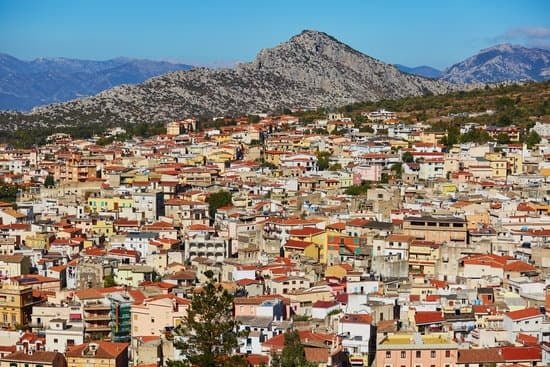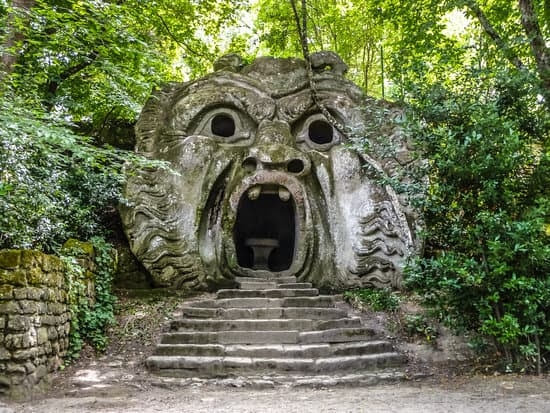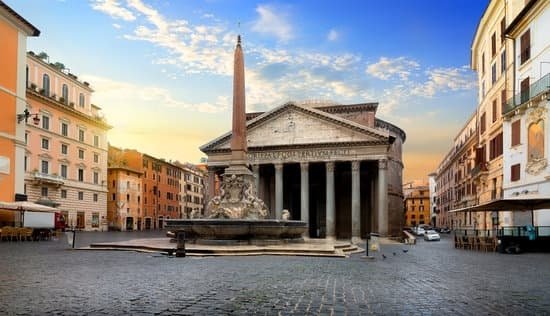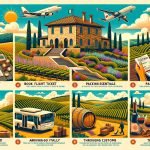Tuscany, Italy is undoubtedly a destination that should be on every traveler’s bucket list. With its breathtaking landscapes, charming medieval towns, and world-renowned cuisine and wine, Tuscany offers an enchanting experience like no other. Whether you’re a history enthusiast, a food lover, or simply in search of a picturesque escape, Tuscany has something for everyone.
One of the main reasons why Tuscany should be at the top of your travel bucket list is its unparalleled beauty. From rolling hills blanketed with vineyards to iconic landmarks such as the Leaning Tower of Pisa and the Duomo in Florence, Tuscany captures the essence of romance and elegance. Strolling through its cobblestone streets feels like stepping back in time, surrounded by Renaissance architecture and captivating landscapes.
In addition to its aesthetic appeal, Tuscany also offers a rich cultural experience that shouldn’t be missed. The region is home to some of Italy’s most celebrated traditions and events. From the famous Palio horse race in Siena to local festivals celebrating everything from wine to truffles, immersing yourself in Tuscan culture will leave you with lasting memories.
So pack your bags and get ready for an unforgettable adventure in Tuscany. In this article, we’ll guide you through all the essential travel tips you need to make the most out of your visit. From the best time to go to must-visit attractions and hidden gems off-the-beaten-path, we’ll ensure that you have all the information necessary for an incredible journey through this captivating region.
Best Time to Visit Tuscany and Why
Tuscany is a region that boasts beautiful landscapes, rich history, and delectable cuisine. When planning a trip to Tuscany, it’s important to consider the best time to visit in order to make the most of your experience. Whether you’re hoping for pleasant weather, fewer crowds, or the chance to witness cultural festivals, choosing the optimal time to visit can greatly enhance your trip.
Weather Considerations
One of the main factors to consider when deciding when to visit Tuscany is the weather. The region experiences mild winters and hot summers. The spring months of April-May and the fall months of September-October are considered an ideal time to visit due to their pleasant temperatures. During these seasons, you can expect average temperatures ranging from 55°F (13°C) – 75°F (24°C), making it comfortable for exploring outdoor attractions and activities.
In contrast, summer in Tuscany can be quite hot with temperatures reaching up to 90°F (32°C) or higher. This may not be suitable for those who are sensitive to heat or prefer cooler temperatures. However, if you don’t mind warm weather and enjoy swimming, summer could still be a good time for visiting coastal areas such as Livorno or Maremma where you can take advantage of the beautiful beaches.
Tourist Crowds
Another key consideration when choosing the best time to visit Tuscany is tourist crowds. The peak tourist season in Tuscany generally falls between June and August when schools are on summer break and many European tourists flock to popular destinations like Florence or Pisa. If you prefer quieter surroundings and less crowded attractions, it may be advisable to plan your trip during shoulder seasons such as April-May or September-October.
Visiting during off-peak seasons not only allows you more space and tranquility but also offers potential savings on accommodations and popular sightseeing activities. Additionally, you may find it easier to secure reservations at popular restaurants or attractions, avoiding long lines and wait times that are more common during peak season.
Cultural Festivals
Tuscany is known for its vibrant cultural festivals which showcase the region’s traditions and heritage. Consider aligning your visit with some of these celebrations to enhance your experience in Tuscany. One notable festival is the Palio di Siena, a thrilling horse race held every July 2nd and August 16th in Siena’s historic Piazza del Campo. This centuries-old tradition attracts locals and tourists alike, creating an exhilarating atmosphere.
In February, the Carnival of Viareggio takes center stage with its extravagant parades featuring giant papier-mâché floats. This lively festival is a must-see for those who enjoy colorful celebrations and elaborate costumes.
Planning your trip to coincide with these festivals will allow you to witness unique cultural events while immersing yourself in the rich traditions of Tuscany. However, keep in mind that these events tend to attract larger crowds, so be sure to book accommodations and make arrangements well in advance if you choose to attend.
Top Attractions in Tuscany You Cannot Miss
Tuscany is filled with countless attractions that are sure to captivate any traveler. From its rich history and culture to its breathtaking landscapes, there is something for everyone to enjoy in this enchanting region. Here are some of the top attractions in Tuscany that you simply cannot miss.
- The medieval town of Siena: Siena is a UNESCO World Heritage site and is known for its well-preserved medieval architecture and bustling main square, Piazza del Campo. Take a stroll through its narrow streets, visit the stunning Duomo di Siena, and immerse yourself in the vibrant atmosphere.
- The magnificent city of Florence: No trip to Tuscany would be complete without visiting Florence, the birthplace of the Renaissance. Marvel at iconic landmarks such as the Duomo, Galleria degli Uffizi, and Ponte Vecchio. Explore the charming streets of the Oltrarno neighborhood and indulge in authentic gelato along the way.
- The picturesque Cinque Terre: Located on the stunning Italian Riviera coastline, the Cinque Terre consists of five colorful fishing villages perched on cliffs overlooking the turquoise waters of the Mediterranean Sea. Hike along scenic trails that connect these villages or take a boat ride to admire their beauty from afar.
- The iconic Tower of Pisa: Head to Pisa to see one of Italy’s most famous landmarks, the Leaning Tower of Pisa. Climb up its spiral staircase for panoramic views or simply snap a photo with this architectural marvel.
- The historical town of San Gimignano: Known for its towers that dot its skyline, San Gimignano takes visitors back in time with its well-preserved medieval architecture. Wander through narrow alleys lined with shops selling local products and taste delicious saffron-flavored dishes.
These are just a few highlights among many amazing attractions in Tuscany. Whether you’re interested in art, history, nature, or food, this region has it all. Don’t miss the opportunity to explore these top attractions and create unforgettable memories in Tuscany.
Immersing in Tuscan Culture
Tuscany is not only known for its stunning landscapes and historic sites, but also for its vibrant and rich culture. To truly experience the essence of Tuscany, it is important to immerse yourself in the local life and traditions of this enchanting region.
One of the best ways to immerse yourself in Tuscan culture is by participating in traditional Tuscan cooking classes. Learn how to make authentic Italian dishes from local chefs who will teach you age-old techniques and share their family recipes. These classes often take place in picturesque farmhouses or wineries, allowing you to not only learn about cooking but also enjoy the beautiful scenery that Tuscany has to offer.
Wine tasting at local vineyards is another essential aspect of experiencing Tuscan culture. With its renowned wine regions like Chianti and Montalcino, Tuscany is a paradise for wine enthusiasts. Take a tour of these vineyards, learn about the different grape varieties, and indulge in tastings guided by knowledgeable sommeliers. This is a wonderful way to appreciate the art of winemaking while enjoying the picturesque landscapes that surround these vineyards.
To fully immerse yourself in local life, it is also recommended to explore the smaller towns and villages of Tuscany. Each town has its own unique charm and traditions waiting to be discovered. Whether it’s witnessing a traditional festival or simply mingling with locals at a neighborhood café, these experiences will give you a glimpse into everyday life in Tuscany.
Overall, immersing yourself in Tuscan culture means embracing the slower pace of life and appreciating the passion that Italians have for their traditions. From cooking classes to wine tastings and exploring charming villages, there are countless ways to engage with local life when visiting Tuscany.
| Tuscan Cultural Experiences | Benefits |
|---|---|
| Participating in traditional Tuscan cooking classes | Learn authentic Italian cooking techniques and recipes |
| Visiting local vineyards for wine tasting | Experience Tuscany’s rich wine heritage and stunning landscapes |
| Exploring smaller towns and villages of Tuscany | Get an authentic glimpse into everyday life in Tuscany |
Navigating Tuscany
Tuscany is a region in Italy that offers stunning landscapes, charming towns, and delicious cuisine, making it a must-visit destination for travelers. To fully enjoy all that Tuscany has to offer, it’s important to have a good understanding of how to navigate the region. This section will provide valuable information on transportation options and tips for getting around Tuscany.
Renting a Car
Renting a car is one of the most convenient ways to explore Tuscany. It allows you the freedom to discover hidden gems and off-the-beaten-path destinations at your own pace. There are numerous car rental agencies available at major airports and cities in Tuscany, making it easy to find a vehicle that suits your needs.
However, keep in mind that certain areas of Tuscany, such as the historic centers of Siena and Florence, have restricted traffic zones where cars are not allowed. Therefore, it’s important to research and plan accordingly if you want to visit these areas by car.
Public Transportation
Tuscany also offers an efficient public transportation system for those who prefer not to drive. Trains are a popular option for traveling between major cities in Tuscany and other regions of Italy. The train network connects cities like Florence, Pisa, Siena, and Lucca, providing scenic journeys through the picturesque Tuscan countryside. Buses are another viable option for getting around within Tuscany, especially when visiting smaller towns with limited train connections.
Scenic Train Rides
If you’re looking for a unique way to experience the beauty of Tuscany while getting around, consider taking scenic train rides. The Val d’Orcia region offers breathtaking views of rolling hills dotted with cypress trees and medieval villages.
Take a train from Siena or Chiusi towards Monte Antico or Asciano to witness the splendor of this UNESCO World Heritage site. Additionally, the journey from Florence to Siena is famous for its scenic landscapes and provides an opportunity to see the heart of Tuscany.
Whether you choose to rent a car or utilize public transportation, getting around Tuscany is relatively easy and offers a variety of options to suit different preferences. It’s important to plan your transportation ahead of time, considering factors such as parking availability, traffic restrictions, and train schedules. By doing so, you can make the most out of your time in Tuscany and ensure a seamless travel experience throughout this beautiful region.
Hidden Gems of Tuscany
Tuscany, Italy is not only known for its famous cities like Florence and Siena, but also for its hidden gems off the beaten path. These lesser-known destinations offer a unique and authentic experience for travelers looking to explore the beautiful countryside and discover the region’s rich history and culture.
One hidden gem in Tuscany is the village of Montepulciano. Perched on a hilltop, this medieval town is known for its stunning views of the surrounding vineyards and rolling hills. Montepulciano is also famous for its Vino Nobile wine, which can be sampled at various wineries throughout the town. Visitors can wander through its narrow streets, explore historic buildings and churches, and enjoy traditional Tuscan cuisine at local trattorias.
Another off-the-beaten-path destination in Tuscany is Pitigliano. This ancient village sits atop a tuff cliff, surrounded by breathtaking landscapes. Known as “Little Jerusalem” due to its historical Jewish community, Pitigliano features a Jewish quarter with a synagogue dating back to the 16th century. The town also boasts an impressive Etruscan heritage, showcasing ancient underground passages and tombs carved into the rock.
For those seeking relaxation and tranquility, Bagno Vignoni is a hidden gem worth visiting. This small village is home to natural thermal baths that have been enjoyed since Roman times. The center of Bagno Vignoni features a large rectangular pool filled with thermal water, creating a unique and picturesque setting. Visitors can indulge in spa treatments or simply relax in the soothing hot springs while taking in the beautiful surroundings.
| Destination | Main Attraction | Noteworthy Features |
|---|---|---|
| Montepulciano | Vino Nobile wine and panoramic views | Medieval architecture, traditional cuisine |
| Pitigliano | Historical Jewish quarter and Etruscan heritage | Ancient underground passages, scenic landscapes |
| Bagno Vignoni | Natural thermal baths and spa treatments | Picturesque hot springs, Roman history |
These hidden gems are just a glimpse of the treasures that Tuscany has to offer. Exploring these off-the-beaten-path destinations will allow you to discover the lesser-known side of this enchanting region and create unforgettable memories.
Savory Delights
Tuscany is not only known for its stunning landscapes and rich history, but also for its exceptional cuisine. Exploring the flavors of Tuscan cuisine and visiting local food markets is a must-do experience for any traveler in this region. Whether you are a food lover or simply curious about the local gastronomy, Tuscany offers a plethora of mouthwatering dishes that are sure to satisfy your culinary cravings.
One way to immerse yourself in Tuscan cuisine is by exploring the local food markets. These bustling marketplaces not only offer fresh produce, meats, and cheeses, but they also give you an opportunity to interact with locals and learn about their traditional ingredients and cooking techniques.
The most famous food market in Tuscany is Mercato Centrale in Florence, which boasts an array of stalls selling everything from fresh fish to artisanal pastries. Strolling through the vibrant aisles of this market will awaken your senses and provide you with an authentic taste of Tuscan life.
When it comes to Tuscan cuisine, there are certain dishes that you simply cannot miss. One iconic dish is the Fiorentina steak, a thick-cut porterhouse steak cooked over an open flame. This tender and flavorful meat is a true delicacy in Tuscany and is often enjoyed alongside a glass of robust red wine.
Another must-try dish is handmade pasta, such as pappardelle or tagliatelle served with rich ragù sauce. The simplicity of these dishes allows the quality of the ingredients to shine through, showcasing why Tuscany is renowned for its farm-to-table philosophy.
Exploring Tuscan cuisine also means indulging in local specialties like truffles, pecorino cheese, and olive oil. Truffles are highly prized in Tuscany for their earthy flavor and aroma. You can sample truffle-infused oils, cheeses, or even join a truffle hunt to witness these rare fungi being unearthed.
Pecorino cheese, made from sheep’s milk, is a staple in Tuscan cuisine and can be enjoyed on its own or used as a delicious accompaniment to various dishes. And of course, no trip to Tuscany is complete without tasting the region’s renowned olive oil. Take a tour of an olive grove and learn about the production process while enjoying a tasting of different varieties.
Exploring Tuscan cuisine and local food markets is an essential part of any visit to this enchanting region. From indulging in iconic dishes like Fiorentina steak and handmade pasta to sampling truffles, pecorino cheese, and olive oil, you will discover that every bite in Tuscany is a true delight for the senses. So prepare your taste buds for an unforgettable gastronomic journey through this culinary paradise.
Savoring Tuscany’s Vineyards and Wine Regions
In conclusion, exploring Tuscany’s vineyards and wine regions is an essential experience for any traveler visiting this beautiful region of Italy. The rich wine heritage of Tuscany offers a unique opportunity to dive into the world of Italian viticulture and indulge in the flavors of some of the world’s finest wines.
Whether you are a seasoned wine enthusiast or simply looking to expand your palate, Tuscany offers a diverse range of vineyards and wine regions to satisfy every taste.
Visiting renowned vineyards like Chianti and Montalcino allows visitors to immerse themselves in the picturesque landscapes that have cultivated these exceptional wines for generations. From rolling hills dotted with sun-kissed vines to charming cellars lined with oak barrels, each winery tells its own story, giving visitors a glimpse into the artistry and passion behind Tuscan winemaking.
In addition to tasting exquisite wines, visitors can also learn about the art of pairing Tuscan wines with local dishes. With its rich culinary traditions, Tuscany offers ample opportunities to savor delectable meals accompanied by perfectly paired wines. From robust reds complementing hearty pasta dishes to crisp whites enhancing fresh seafood, indulging in the gastronomic delights of Tuscany is an unforgettable experience.
Frequently Asked Questions
How many days do you need in Tuscany Italy?
The number of days you need in Tuscany, Italy, largely depends on the extent to which you want to explore the region and experience its offerings. If you only have a limited amount of time, such as a weekend getaway, it’s still possible to visit some key highlights like Florence, Siena, and the Chianti wine region.
However, for those who wish to immerse themselves more deeply in Tuscany’s culture, history, and countryside charm, spending at least a week or even two would be ideal. This allows ample time to visit additional towns like Pisa and Lucca, indulge in leisurely wine tasting experiences, enjoy scenic drives through the rolling hills, and relish in the slower pace of life that Tuscany is famous for.
What is the best month to visit Tuscany?
The best month to visit Tuscany depends on personal preferences and what you hope to experience during your trip. That being said, many travelers consider May or September as particularly favorable months due to the pleasant weather conditions and fewer crowds compared to peak tourist season which typically falls between June and August. In May, Tuscany starts blooming with vibrant colors as spring arrives and temperatures are mild.
It’s also an excellent time for outdoor activities like hiking or cycling through picturesque landscapes. Similarly, September offers warm days but with cooler evenings, making it an appealing time for wine enthusiasts as it coincides with grape harvest season.
What is the best way to get around Tuscany Italy?
There are various ways to get around Tuscany depending on your preferences and itinerary plans. Renting a car can be advantageous if you wish to explore off-the-beaten-path destinations or rural areas where public transportation may be limited. It grants you flexibility and independence in terms of timing your visits to different towns or vineyards without having to adhere strictly to bus or train schedules. However, keep in mind that parking can be challenging in popular cities like Florence or Siena.
For those who prefer not to drive, Tuscany has a well-connected train network with frequent services between major cities. Trains are an efficient mode of transport for day trips or moving between larger towns. Additionally, buses can be a good option for reaching smaller villages that may not have train stations. Ultimately, the ideal way to get around Tuscany depends on your specific travel preferences and the kind of experience you’re seeking in this captivating region.

I’m a passionate traveler, writer, and Italophile. My fascination with Italy’s history, art, and culture has led me on countless adventures across the Italian landscape. Through “I Live Italy,” I share my love for this extraordinary country and aims to inspire others to explore its boundless beauty.





